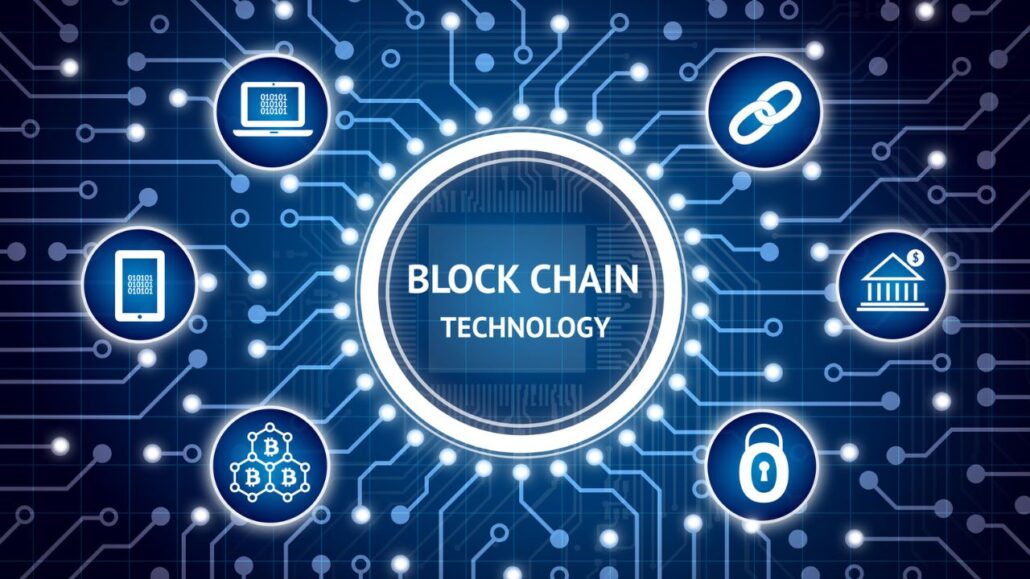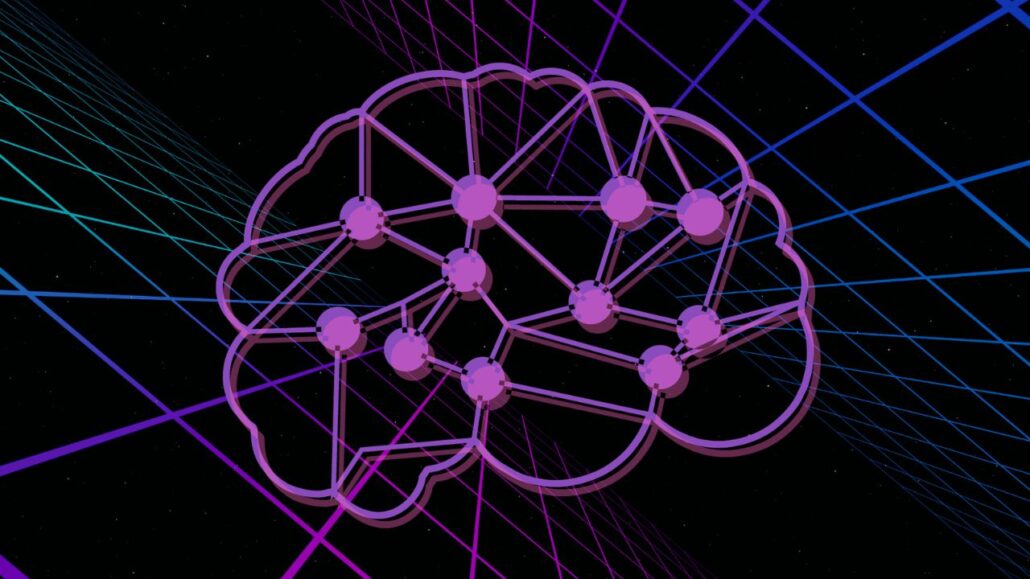A blockchain is a distributed database or archive shared among a computer network’s nodes. They are best known for their crucial role in cryptocurrency systems for maintaining a secure and decentralized record of transactions, but they are not limited to cryptocurrency applications.
Blockchain Technology

What is Blockchain?
Blockchain is a distributed ledger technology that allows multiple parties to record and verify transactions without the need for a central authority. Information is stored in blocks that are linked together in a chain, hence the name “blockchain.” Each block contains a list of transactions, and once added, it is nearly impossible to alter the information.
A Brief History of Blockchain
Blockchain technology was first introduced in 2008 by an individual or group using the pseudonym Satoshi Nakamoto as the underlying technology for Bitcoin. Since then, it has evolved and found applications in various sectors.
The Importance of Blockchain
Blockchain’s significance lies in its ability to create trust in a trustless environment. It offers security, transparency, and decentralization, which are crucial features in a digital world where trust is often lacking.
How Blockchain Works
How blockchain works is critical to grasping its significance.
Decentralization
One of the fundamental features of blockchain is its decentralized nature. Instead of relying on a single entity, the data is stored across a network of computers, making it highly resistant to tampering.
Cryptography
The blockchain uses advanced cryptographic techniques to secure transactions and control the creation of new units. This ensures the integrity and authenticity of the data.
Consensus Mechanisms
Blockchain networks rely on consensus mechanisms like Proof of Work (PoW) or Evidence of Stake (PoS) to validate and add new transactions to the ledger. These mechanisms ensure that all parties agree on the state of the blockchain.
Use Cases of Blockchain
Blockchain’s applications go far beyond cryptocurrencies.
Cryptocurrencies
Cryptocurrencies like Bitcoin and Ethereum use blockchain to enable secure and transparent digital transactions.
Supply Chain Management
Blockchain can be used to trace the origin and journey of products in the supply chain, reducing fraud and ensuring quality control.
Smart Contracts
Smart contracts are self-executing agreements with the terms of the agreement directly written into code. They are tamper-proof and automatically execute when conditions are met.
Healthcare
Blockchain can store and protect patients’ health records, ensuring data integrity and privacy.
Voting Systems
Blockchain has the potential to revolutionize voting systems by providing secure and transparent elections.
Advantages and Disadvantages of Blockchain
Advantages
- Transparency: All participants can view the transactions, increasing trust.
- Security: The decentralized nature and cryptographic safeguards make it highly secure.
- Efficiency: Transactions are processed faster and with lower fees.
Disadvantages
- Scalability: Blockchain networks can need help handling a large number of transactions.
- Energy Consumption: Proof-of-work blockchains, like Bitcoin, require substantial energy.
The Future of Blockchain
As blockchain technology matures, several innovations and challenges lie ahead.
Potential innovations
Innovations like sharding and layer-two solutions aim to address scalability issues, making blockchain more efficient.
Cryptocurrency
Cryptocurrency refers to a digital or virtual form of currency that relies on cryptography for security. It is decentralized and operates on a technology called blockchain, enabling secure and transparent peer-to-peer transactions. Popular cryptocurrencies include Bitcoin, Ethereum, and many others.
Crypto Mining
Cryptocurrency mining is the process of validating and recording transactions on a blockchain by solving complex mathematical problems. Miners are rewarded with cryptocurrency tokens for their computational work.
Crypto Trading
Crypto trading involves the buying and selling of cryptocurrencies on various exchanges to profit from price fluctuations. Traders employ different strategies to maximize their returns.
Bitcoin
Bitcoin is the first and most well-known cryptocurrency, created by an anonymous entity or person named Satoshi Nakamoto in 2009. It serves as a digital currency that operates independently of a central authority, making it a pioneer in the world of cryptocurrencies.
Ethereum
Ethereum is a blockchain platform that goes beyond being just a cryptocurrency. It allows developers to create decentralized applications (DApps) and smart contracts, enabling a wide range of decentralized services and platforms to be built on its network.
Cryptocurrency Exchange
A cryptocurrency exchange is a digital platform where users can buy, sell, and trade various cryptocurrencies. These exchanges facilitate the exchange of digital assets and provide a marketplace for cryptocurrency transactions.
Decentralized Finance (DeFi)
DeFi refers to a financial ecosystem built on blockchain technology, offering decentralized and open-source financial services like lending, borrowing, trading, and more. DeFi eliminates the need for traditional financial intermediaries.
Initial Coin Offering (ICO)
An ICO is a fundraising method in which new cryptocurrency projects offer their tokens to the public for investment. Investors purchase these tokens, hoping for future returns when the project is developed.
Blockchain Technology
Blockchain is a distributed ledger technology that records transactions in a secure, transparent, and immutable way. It consists of a chain of interconnected blocks, making it highly resistant to tampering or fraud.
Smart Contracts
Smart contracts are self-executing, code-based contracts that automatically enforce the terms and conditions of an agreement when predefined conditions are met. They run on blockchain platforms like Ethereum.
Crypto Wallet
A crypto wallet is a digital tool used to store, send, and receive cryptocurrencies. It comes in various forms, such as software wallets, hardware wallets, and paper wallets, and is essential for cryptocurrency ownership and security.
Blockchain Development
Blockchain development involves creating and maintaining blockchain networks, decentralized applications, and smart contracts. Developers use various programming languages and tools to build and enhance blockchain ecosystems.
Blockchain Certification
Blockchain certification programs and courses provide individuals with the knowledge and skills needed to work with blockchain technology. These certifications validate a person’s expertise in blockchain development and related areas.
Blockchain Consulting
Blockchain consulting services offer guidance and expertise to businesses and organizations looking to implement blockchain solutions. Consultants help assess and implement blockchain technology for specific use cases.
NFTs (Non-Fungible Tokens)
NFTs are unique digital assets that represent ownership of a specific item, artwork, or collectible in the digital world. They use blockchain technology to prove their authenticity and scarcity.
Blockchain Security
Security Blockchain refers to the measures and practices used to protect blockchain networks and the data they contain from cyber threats, ensuring the integrity and confidentiality of information.
Blockchain Applications
Applications of Blockchain have a wide range beyond cryptocurrencies, including supply chain management, healthcare, voting systems, and more. It offers secure and transparent data management.
Blockchain Use Cases
Versatile Blockchain has use cases, from improving supply chain transparency and voting systems to enhancing identity verification and digital rights management.
Blockchain Governance
Blockchain governance mechanisms determine how decisions are made regarding the development and maintenance of a blockchain network. It can be on-chain (governed by tokens) or off-chain (managed by a consortium or organization).
Blockchain Consensus Algorithms

Consensus algorithms are essential for validating and agreeing on the state of a blockchain. Common algorithms include Proof of Work (PoW) and Proof of Stake (PoS), which determine how new transactions are added to the blockchain.
Challenges to overcome
Exactly Does Blockchain Do, Regulatory challenges and the environmental impact of some blockchains are critical issues to address in the future.
Blockchain technology is not limited to cryptocurrencies; it has the potential to disrupt multiple industries, offering transparency, security, and efficiency. Understanding how blockchain works and its various use cases is essential for harnessing its full potential.
FAQ:
What is the Primary Purpose of Blockchain Technology?
Exactly Does Blockchain Do, Blockchain technology’s primary purpose is to create a decentralized, secure, and transparent ledger for recording and verifying transactions.
Can Blockchain be Used for Industries Other than Finance?
Exactly Does Blockchain Do, Yes, blockchain has applications in supply chain management, healthcare, voting systems, and more.
What is the Key Advantage of Blockchain in Supply Chain Management?
Exactly Does Blockchain Do, Blockchain can trace the origin and journey of products, reducing fraud and ensuring quality control in the supply chain.
Are There any Disadvantages to Blockchain Technology?
Exactly Does Blockchain Do, Yes, scalability issues and the energy consumption of certain blockchains are disadvantages that need to be addressed.
What Does the Future Hold for Blockchain Technology?
Exactly Does Blockchain Do, The future of blockchain includes innovations like sharding and layer-two solutions, along with challenges related to regulation and environmental impact.
What Does Blockchain Actually Do?
Blockchain is a method of recording information that makes it impossible or difficult for the system to be changed, hacked, or manipulated. A blockchain is a distributed ledger that duplicates and distributes transactions across the network of computers participating in the blockchain.
What is the Blockchain in a Simple Way?
A blockchain is a decentralized public ledger that is immutable, meaning once the transaction details are written to a block, it can’t be changed by anybody. The copy of the ledger is with everyone on the network because it’s decentralized, so that removes the need for a third party and the dependence on third parties.
How Does Blockchain Work to Make Money?
One of the most common ways to make money with blockchain is through cryptocurrency investments. Purchasing digital currencies like Bitcoin, Ethereum, or other altcoins at a lower price and selling them when their value increases can result in substantial profits
Why do We Need Blockchain?
Blockchain technology has a big impact on cross-border transactions because it makes foreign trade faster, safer, and more affordable. With the help of blockchain technology, parties from various nations can conduct business with one another without the use of expensive and time-consuming intermediaries like banks.



